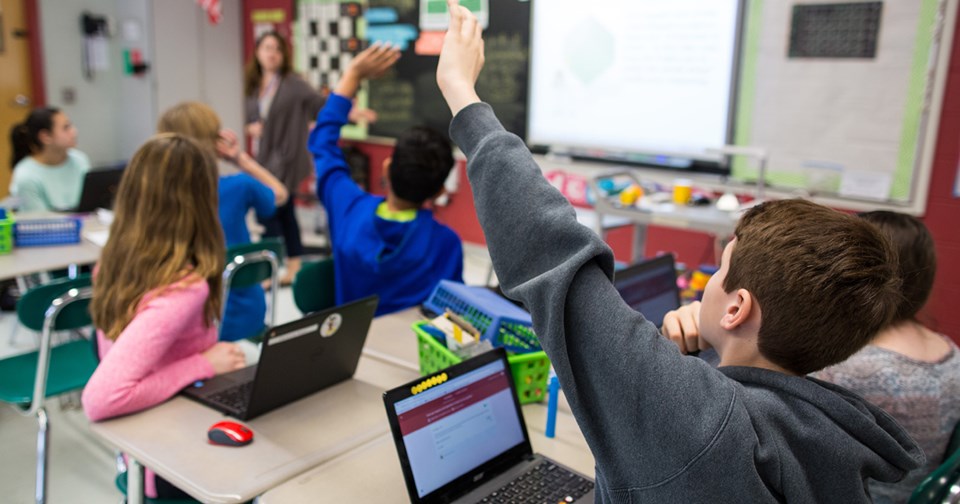With the first month of school well underway, the dinner-table reports are probably in about the new class, new teacher(s), new playground dynamics, who made it onto which team, new friends, old friends, maybe a completely new and different school.
Generally, even for older kids, back-to-school is major repositioning from “who I am” to “who I apparently am supposed to be,” according to the expectations of a variety of adults.
As a result, there is much for most kids to worry about. The fact that the worries, at least from a parental point of view, are essentially baseless is irrelevant.
“What if I have a teacher or teachers I don’t like?” “Will my friends still be there, will they still like me or will they have new friends?” “I hear the work in this next year’s grade is really hard and the teachers are mean.”
This is the same kind of anxiety we all faced as adults as we tackled life’s transitional experiences: a new job, a step up the career ladder in the existing job, new responsibilities, a new neighbourhood, even a new relationship upon which much may depend, “will I be good enough for this?”
As adults, back-to-school seems inconsequential because we have developed, through our background of experience, a perspective that prepares us for dealing with life’s challenges. But as children, if we are to be honest, we were not always ready for the sudden transition of being dragged out of the idyll of summer and sent into an 80-square-metre classroom under the control of adults about whom we knew nothing but, in some cases, had heard the worst.
Fortunately, for both kids and their parents, the chaos and anxiety of school opening day will, by the middle of the first month, have been moderated with the reality of each passing day as new routines become familiar.
Surprisingly, child psychologists tell us, it is not a new classroom that provokes the greater anxiety for some kids, but the move from the comfort of neighbourhood friends and the freedom of unstructured summer days to the bell-driven organization of the school day.
Learning the rules of the social jungle of the playground at the prescribed hours and minutes of recess and lunchtime might even be the hardest part, especially for kids who harbour genuine fears about their own social adequacies.
As writer Candy Lawson of the non-profit Centre for Development of Learning explains, “failing a social ‘test’ can be more painful to a child than failing a reading or science test. For some children, social skills can be the hardest subject to pass in school.”
The role played by parents in all this can be influential. First of all, telling a child not to worry about the things he/she is worried about is about the least effective thing a parent can do. Worry for a child is worry.
Instead, the experts tell us it is better to listen to worries, not deny their existence. Responding with something like “we’ll talk about that some more because I can remember worrying about exactly the same thing my first day at a new school” is more reassuring that “you’re silly to be worrying about nothing.”
Then there is the danger of becoming what some education writers refer to as a “lawnmower parent.” We’ve all heard about “helicopter parents” who hover over their kids incessantly, but “lawnmower parents” go to whatever lengths necessary to prevent their child from having to face any challenges, adversity, struggle or even failure that accompany back-to-school.
Instead of preparing children for challenges, lawnmower parents scythe down obstacles so kids won’t experience them in the first place.
That’s not to say there is never a time to step in and assist the child with the development of a strategy for dealing with the problem, but as child psychologists explain, micromanaging children’s lives is sometimes inhibiting them from learning the essential skills of communicating, negotiating, learning from mistakes and making decisions.
The great danger of being a “lawnmower parent” is that with every best intention, parents might be sending children the message that the children are not competent to deal with things themselves.
None of this is to lose sight of the fact that there are some children who genuinely suffer from serious anxiety, depression or other forms of mental illness that make going back to school a frightening and almost insurmountable hurdle. For some kids, especially those with clinically diagnosed anxiety disorders, being in a new classroom or playground can be very intimidating.
Most research indicates that the No. 1 parental responsibility here is to establish an alliance with a child’s teachers as crucial to your working as a team throughout the school year.
One month down and nine to go.
Geoff Johnson is a former superintendent of schools.



